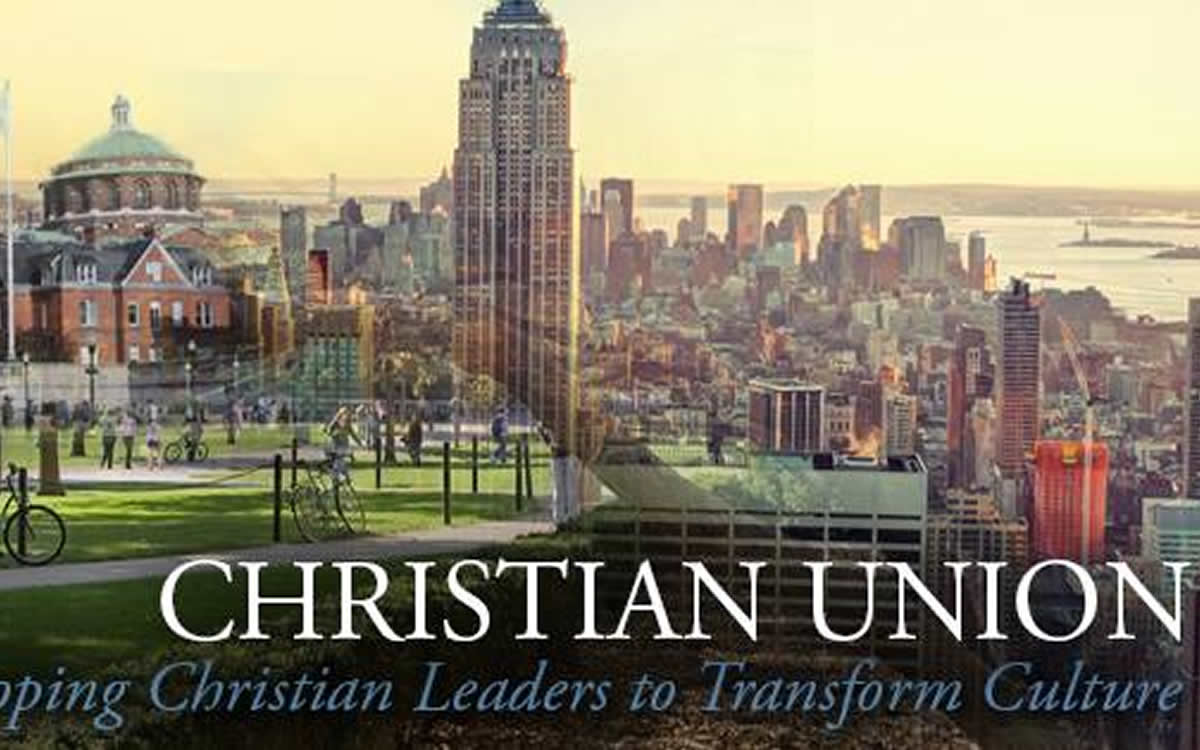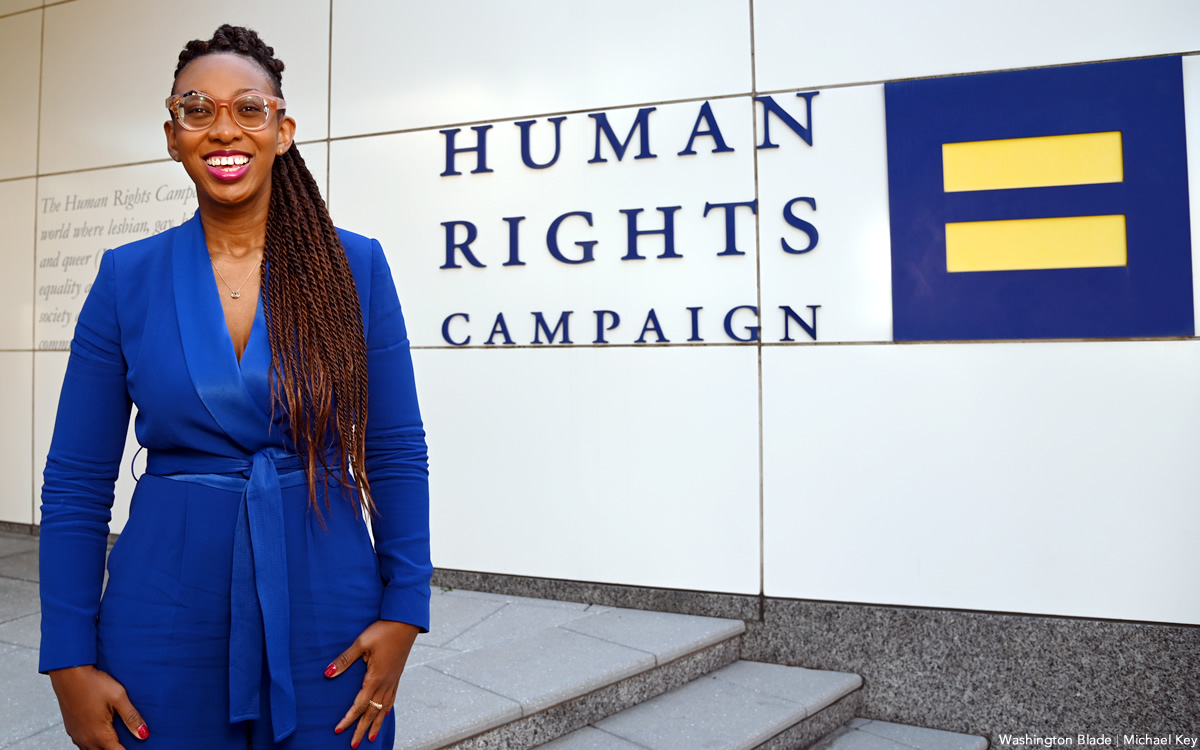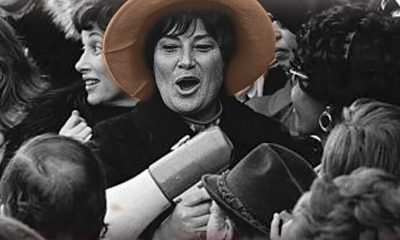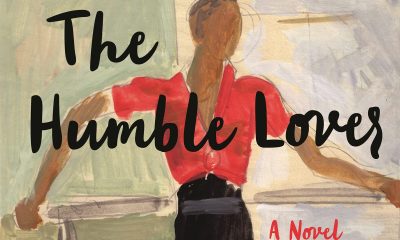News
Christian Union perpetuates culture of homophobia at elite universities
Matt Bennet founded organization in 2002

The Christian Union was founded in 2002 by CEO Matt Bennet to fight what he saw as the secularization of top universities and to raise up a generation of global leaders with Christian values. Since it established its first ministry program at Princeton University in 2002, Christian Union has established chapters at all eight Ivy League Schools, as well as at Stanford University and Harvard Law School.
To most onlookers, the Christian Union appears to be a relatively benign presence on these campuses.
Christian Union’s Dartmouth College chapter, for example, until the middle of last year made waffles late on Friday nights to give to students walking home from Frat Row, and these “Christian waffles” made the group somewhat of a hit among the college’s partying community. Dartmouth Christian Waffles, which now operates independently of Christian Union, now makes the waffles.
Behind the Christian Union’s friendly aesthetic and glossy promotional materials, however, there is a sinister and well documented history of homophobia, and queer student members have felt the consequences of the organization’s fundamentalist approach to sex and sexuality.
In the wake of the 2015 U.S. Supreme Court decision legalizing same-sex marriage, the Christian Union Magazine published an article titled “After Obergefell: What Can the Church do?”, describing the ruling as “egregious” and calling on the church to reach out to “those with same-sex attraction and gender identity confusion” and help them form a “Biblical view of themselves.” Under all of the coded religious language, this means, at worst, praying the gay away, and at best, celibacy.
On July 21, 2016, the Christian Union Magazine published an article titled “Christianity Can’t Be Stretched to Endorse Homosexuality,” directly in the wake of the Pulse nightclub massacre in Orlando, Fla. Instead of mourning this instance of extreme violence against the LGBTQ community, the article launched into a defense of the organization’s non-affirming theology, arguing that a true Christian could never accept “gay sexual practices” while remaining faithful to the Bible.
This article is one of many on the topic of what the Christian Union calls “same-sex attraction” — even that phrase robs queer people of humanity and minimizes what it means to be gay — and all are available on Christian Union’s website for the world to see. However, the Christian Union is first and foremost an organization that engages with college students, and to understand the human impact of their fundamentalist theology, the Washington Blade reached out to several current and former Christian Union members about their experiences with the group.
Darby Aono, who graduated from Yale University in 2017, became involved in Yale Christian Union at the end of her freshman year. She was invited to the group by a friend from her dorm, and Aono’s interactions with the first ministry fellow she met were overwhelmingly positive. She continued to get involved with Christian Union, including joining a Bible study later that year.
“I was at Yale over the summer, and I was invited to their Bible study, so I started going to that. There were definitely suspicious things — not about queer stuff, yet — but at that time they did not have women in leadership roles, and it was understood that were would not be,” Aono said.
Valentina Fernandez is a current sophomore at Dartmouth College, and she shared that her experience with Christian Union at Dartmouth has been generally positive. But, similarly to Aono’s initial experience at Yale, Dartmouth’s chapter had an off-putting approach to gender.
Fernandez shared that everyone in the group was very welcoming during her first year, and as someone who was raised Christian but wasn’t very knowledgeable about traditions or the Bible, she was mostly there to find community.
“The reason why a lot of [sophomores], particularly girls, are not as involved this year is because apparently a girl can’t be president by herself — she needs to be co-president with a guy. And a lot of us were like, what?! I wish I knew more about that,” Fernandez said.
While the Christian Union’s approach to women in leadership was concerning for both Fernandez and Aono, it was when Aono started to question her own sexuality that more contentious conversations about queer identities started to surface within Yale Christian Union.
“I think it was maybe during my sophomore year, when I was like, oh, like, maybe I’m not straight. And so I would sometimes talk to my friend in my dorm who was in Christian Union, who originally invited me, and we would get into arguments about homosexuality,” Aono said.
“The party line of Christian Union at that time was ‘love the sinner, hate the sin,’ where we all sin, so we aren’t going to excommunicate anyone for feeling same sex attraction, but just don’t act on it. Don’t sin. I would say that was generally how people seemed to feel about it.”
Then, Aono joined a Christian Union book club, where they read Wesley Hill’s book “Washed and Waiting,” in which Hill advocates for gay Christians to live celibate.
“I don’t want to speak for everyone, but I will say I personally joined the book club because I knew I was queer,” Aono said. “A large part of the discussion was about how to acknowledge the fact that you experience same-sex attraction without acting on it.”
Aono described reading Bible passages in the book club about being gay alongside other passages about being a drunkard or a thief, and feeling a sense of deep incongruity between the two.
“I remember being in the book club and being like: Being gay just is categorically different than stealing. I don’t understand why those two things are listed together,” Aono said.
However, one of the most pivotal conversations about being queer during Aono’s time with the Christian Union happened in the wake of the Obergefell ruling. After seeing the articles Christian Union was publishing about homosexuality after the ruling, Aono reached out to Christian Union via email, asking them to stop spreading incorrect and harmful messages. This email is what got her a meeting with Chris Matthews, the ministry director of Yale Christian Union at the time.
“Somehow, the ministry director figured out that I had sent this email. And so eventually we ended up deciding to have a meeting. At first, we were just arguing about whether you could change the fact that you were gay. At some point, I basically came out to him as queer,” Aono recalled. “And he said, ‘I understand how you’re feeling, because when I was a teenager, I used to have sexual feelings towards office supplies, but I grew out of that.’ I didn’t even know what to say in response to that. I didn’t fight him, because I think I was too shellshocked.”
“I remember walking out of there and then having to go to a ‘welcome the freshmen to Christian Union’ event. And I was like, I don’t know how I’m supposed to go welcome some fucking freshmen after this,” Aono said.
While comparing being queer to being attracted to office supplies is a truly unique instance, moments of casual — and non-casual — homophobia are all too common in the Christian Union. This doesn’t mean that students don’t find meaningful community in the group, or that all of its members are non-affirming of queer people, but the organization itself has a long track record of unsupportive and sometimes outright discriminatory practices.
Harvard University’s chapter of Christian Union, called Harvard College Faith and Action, ignited controversy in 2018 for forcing a student leader to step down after finding out that she was in a celibate same-sex relationship. This led to HCFA being put on probation for violating the university’s anti-discrimination policies for student organizations, only to be re-recognized a year later, despite failing to disaffiliate from Christian Union as the college had required.
A recent Harvard graduate and former member of HCFA, who asked to remain anonymous due to privacy concerns, recalled being caught off guard by how non-affirming the organization was.
“I became interested in HCFA because of some racial justice work that they were doing,” they said. “I didn’t expect them to be fully affirming. I didn’t realize quite how bad it would be.”
A few months after HCFA pressured the student leader to step down for being in a same sex relationship, they again stirred controversy by inviting writer and self-identifying former lesbian Jackie Hill-Perry to Harvard to speak with Christian Union in February 2018. While HCFA characterized this as an “internal” event, Hill-Perry’s presence on campus drew attention, and protesters bearing rainbow flags showed up to the event.
Princeton University’s chapter of Christian Union had also hosted Jackie Hill-Perry in February 2017, so the practice of Christian Union paying a self-identified “speaker to preach on the sins of homosexuality was nothing new.”
The recent Harvard graduate, who attended Hill-Perry’s Harvard speech, recalled the event and HCFA’s efforts to re-characterize it as an internal, scriptural conversation instead of an anti-gay public forum.
“It was very much spun as, she’s going to talk about Jesus in the Garden of Gethsemane before he decided to sacrifice himself,” the graduate said. “The HCFA kept pushing the idea that this was going to be about this particular Bible story, which is a very important Bible story amongst Christians. Now, she did preach on that — and there was no program given before — but she very much preached on the immorality of same-sex relationships and how you can overcome same-sex attraction.”
Unlike Aono, who ended up talking with Yale Christian Union leadership about her concerns, the anonymous Harvard graduate recalled generally being ignored by HCFA leadership.
“I never got any meeting with any leadership. No one was pulling me into their office — I think they were just hoping I’d shut up,” they said.
Like this former Harvard student, the Blade also had trouble getting a meeting with Christian Union leadership. Almost everyone to whom the Blade reached out to for this article declined to comment.
Don Weiss and Noah Crane, ministry directors at Harvard and Dartmouth, respectively, both declined requests for an interview. Multiple Dartmouth students who are or were Christian Union student leaders, and neither the communications staff of Christian Union nor Tyler Parker ever responded to multiple requests for comment.
“I imagine a lot of people don’t want to talk to you because they were so incredibly damaged. I have no regrets — I’m glad that I brought this up because I have no idea if other people would have,” said the Harvard graduate. “I’m glad that people know that HCFA can be so harmful.”
Politics
HRC slams White House over position opposing gender affirming surgeries for minors
‘Biden administration is flat wrong on this’

Human Rights Campaign President Kelley Robinson issued a strong rebuke on Tuesday of the Biden-Harris administration’s position opposing gender affirming surgeries for minors.
The New York Times reported on June 28 that the White House, which broadly supports making medical interventions available for transgender youth, had expressed opposition to surgeries for patients under 18, having previously declined to take a specific position on the question.
“Health care decisions for young people belong between a patient, their family, and their health care provider. Trans youth are no exception,” Robinson responded.
“The Biden administration is flat wrong on this. It’s wrong on the science and wrong on the substance. It’s also inconsistent with other steps the administration has taken to support transgender youth. The Biden administration, and every elected official, need to leave these decisions to families, doctors and patients—where they belong,” she added. “Although transgender young people make up an extremely small percentage of youth in this country, the care they receive is based on decades of clinical research and is backed by every major medical association in the U.S. representing over 1.3 million doctors.”
Robinson said the “administration has committed to fight any ban on healthcare for transgender youth and must continue this without hesitation—the entire community is watching.”
“No parent should ever be put in the position where they and their doctor agree on one course of action, supported by the overwhelming majority of medical experts, but the government forbids it,” she added.
HRC is a prominent backer of Biden’s 2024 reelection campaign, having pledged $15 million to support efforts in six battleground states. The organization has a strong relationship with the White House, with the president and first lady headlining last year’s National Dinner.
A White House spokesperson declined to respond to Robinson’s statement.
Campaign for Southern Equality President Allison Scott also issued a statement.
“This is a cowardly statement from an administration that promised to support transgender people. It is a troubling concession to the right-wing assault on transgender Americans, falling for their false narratives about surgical care and betraying a commitment to equality and trust in the medical community,” said Scott.
“Let’s be very, very clear: Government has no business inserting itself into private medical decisions that should be exclusively between patients, their providers, and the patients’ parent or guardian,” Scott added.
“It is dangerous to begin endorsing categorical bans or limits on healthcare, and there is no justification for restricting transgender youth’s access to the very same care that many cisgender youth receive every year — that’s literally the definition of discrimination,” Scott concluded. “We demand the Biden administration retract this thoughtless statement and work to undo its damage.”
Virginia
Parades, community events held to mark Pride Month in Va.
Upwards of 30,000 people attended PrideFest in Norfolk on June 22

Activists across Virginia last month held a series of events to mark Pride Month.
Hampton Roads Pride, a volunteer-run organization founded in 1997, held 37 different Pride events throughout the region in June.
Their biggest event, PrideFest, which is part of their larger three day event, Pride Weekend, celebrated its 36th anniversary on June 22. Pride Weekend took place from June 21-23 and began with a block party at NorVa in Norfolk.
PrideFest took place at Town Point Park, and an estimated 30,000 people attended. More than 70 venders participated, while Todrick Hall and Mariah Counts are among those who performed.
Another PrideFest event with a DJ in the afternoon and live music at night took place in Virginia Beach on June 23. Congressman Bobby Scott and U.S. Sen. Tim Kaine (D-Va.) are among those who attended Pride events in Suffolk on June 30.
Norfolk Mayor Kenneth Alexander, along with members of the Norfolk and Virginia Beach City Councils, also attended the Pride events in their respective cities. Jamar Walker, the first openly gay federal judge in Virginia, also took part.
“You know people all throughout Pride Month, at all of our various events, tell me all kinds of stories about their own experiences and the past of this community … and some of our older folks especially, remember when we couldn’t have this,” Hampton Roads Pride President Jeff Ryder told the Washington Blade on Monday during a telephone interview.
“It was a great year,” he added. “It was a big achievement for us to have unique celebrations in each of our seven communities. Each of these cities is so different from one another, but to be able to create a Pride celebration that’s unique in each of those places was really great, and I think really well received by folks who may not have felt represented previously. We’re always trying to do better, to embrace every aspect of our community, and take a big step forward there this year.”
State Dels. Adele McClure (D-Arlington County) and Alfonso Lopez (D-Arlington County) are among those who spoke at Arlington Pride that took place at Long Bridge Park on June 29. The Fredericksburg Pride march and festival took place the same day at Riverfront Park in Fredericksburg.
Republican Virginia Gov. Glenn Youngkin on June 10 hosted a Pride Month reception in Richmond.
Youngkin in previous years has hosted Pride Month receptions, even though Equality Virginia and other advocacy groups have criticized him for supporting anti-LGBTQ bills.
The Republican governor in March signed a bill that codified marriage equality in Virginia. Youngkin last month vetoed a measure that would have expanded the definition of bullying in the state.
U.S. Supreme Court
Concern over marriage equality in US grows two decades after first Mass. same-sex weddings
Gay and lesbian couples began to marry in Bay State in 2004

Two decades after Massachusetts became the first state to legalize same-sex marriage, a new study reveals both significant progress and ongoing challenges for married LGBTQ couples in the U.S., with a growing sense of insecurity about the future of their rights.
The Williams Institute at UCLA School of Law surveyed 484 married same-sex couples from all 50 states and D.C. The study, released Monday, marks the 20th anniversary of legal same-sex marriage in the U.S.
Researchers found that 93 percent of respondents cited love as a primary reason for marrying, with 75 percent also mentioning legal protections. Over 83 percent reported positive changes in their sense of security, and 74.6 percent noted improved life satisfaction since marrying.
However, the study also highlighted persistent discrimination and growing concerns about the future. About 11 percent of couples who had a wedding reported facing prejudice during the planning process.
Alarmingly, nearly 80 percent of respondents expressed concern about the potential overturning of the 2015 Obergefell v. Hodges decision, which legalized same-sex marriage nationwide. This anxiety has been exacerbated by initiatives like Project 2025, a conservative policy blueprint that some fear could roll back LGBTQ rights if implemented.
The possibility of a former President Donald Trump victory in the upcoming election has further intensified these concerns. Many respondents cited Trump’s previous U.S. Supreme Court appointments and his statements on LGBTQ issues as reasons for their apprehension. One participant stated, “The thought of another Trump presidency keeps me up at night. We’ve come so far, but it feels like our rights could be stripped away at any moment.”
The current political climate has 29 percent of respondents considering moving to another state, with 52.9 percent citing socio-political concerns as a primary reason. This reflects a growing sense of insecurity among LGBTQ couples about their rights and freedoms.
Brad Sears, founding executive director of the Williams Institute, noted, “The data clearly show that marriage equality has had a profound positive impact on same-sex couples and their families. However, it also reveals ongoing challenges and serious concerns about the future of these rights in light of current political trends and the upcoming election.”
Christy Mallory, legal director at the Williams Institute and lead author of the study, added, “This research provides crucial insights into the lived experiences of same-sex couples two decades after marriage equality began in the U.S. The high level of concern about potential loss of rights underscores the continued importance of legal protections and public support for LGBTQ+ equality.”
The study found that 30 percent of surveyed couples have children, with 58.1 percent of those parents reporting that marriage provided more stability for their families. However, many of these families now worry about the security of their legal status in the face of potential policy changes and shifting political landscapes.
As the nation reflects on two decades of marriage equality, the study underscores both the transformative power of legal recognition and the ongoing need for vigilance in protecting LGBTQ+ rights. The findings highlight the complex reality faced by same-sex couples in America today: Celebrating hard-won progress while grappling with uncertainty about the future, particularly in light of upcoming political events and potential shifts in leadership.
-

 Canada1 day ago
Canada1 day agoToronto Pride parade cancelled after pro-Palestinian protesters disrupt it
-

 Theater5 days ago
Theater5 days agoStephen Mark Lukas makes sublime turn in ‘Funny Girl’
-

 Baltimore4 days ago
Baltimore4 days agoDespite record crowds, Baltimore Pride’s LGBTQ critics say organizers dropped the ball
-

 Sports4 days ago
Sports4 days agoHaters troll official Olympics Instagram for celebrating gay athlete and boyfriend











